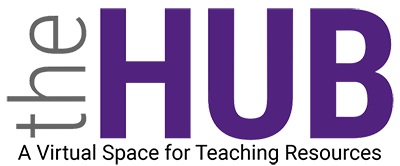Adaptability as an L&D Value
MC recently identified ‘adaptability’ as an organizational value, placing it among a list of six other values recognized as essential in supporting the achievement of performance goals. For organizational values to have relevance beyond existing as mere expressions, they must become translated into actual behaviors. Moreover, the true utility of a value is found when organizations and teams are facing significant business challenges that demand strong changes to meet new performance needs or respond to changes in the environment.
It is not an understatement to say that the field of higher education has changed significantly in the past years, and the changes accelerated during the pandemic. Among the more persistent of challenges that MC faces is to reverse the decline in student enrollment. This challenge is compounded by economic factors that impact enrollment, and the uncertainty students have about college helping to prepare them for future work readiness.
We now turn attention to addressing how ELITE, which is the colleges’ L&D arm, can help the organization to exercise and apply adaptability to address various challenges. We start by looking at what the top of college’s leadership expects about adaptability.
Drawing from MC president Dr. Jermaine Williams’ State of the College Speech in April 2023, several key messages align closely with the value of adaptability.
- Make agility an essential learning outcome
- Knowledge is not the only requirement for success
- Students must know how to learn – learn fast and continuously
- We all have to learn more quickly and be more agile
- We will need to be more curious and explorational
- I want to encourage you to experiment – to follow your curiosity
- We are linking every discipline at the college to a component of experiential learning
All the above messages infer a measure of change, which is not strict and intentional but more open and continuous. How to help achieve this is a challenge for all leaders, and must be exemplified by L&D efforts which are intentionally designed to support the implementation of college performance goals and values.
In this way, ELITE’s recent attention to offering greater learning and development opportunities through delivering shorter, more frequent, digitally accessible, and experiential focused learning opportunities fits well with the value of Adaptability.
Experiential learning emphasizes that trainers serve more as facilitators than subject matter experts. This shift, itself, represents a significant adaptability behavior. Experiential learning that captures the essence of being agile, curious and explorational in teaching. It puts the work on the learner to be much more active and less passive in the process, which can have a more impactful performance outcome. A principal of adult learning is that curiosity and experimentation are attached to internal motivation and effective learning. When and where people want to grow, it is the job of leaders to create new opportunities to learn, try new things and experiment with their careers. In creating these conditions, adaption and development in employee careers becomes possible.
There are many factors to consider in L&D’s challenge to apply the value of adaptability in their products and services. It is about setting the stage with intentionally designed training that feeds curiosity and exploration through experiential stage setting which involves critical problem solving, situational learning and case studies. The learning and developing results that follow from this training will offer new ways to assess impact. This pull model is opposite to the traditional role of teacher and student. While adaptability includes tradition, it also says that ‘change’ is needed to improve what we have through making sense of what is new.
Adaptability with agility is not about change management, which is more concerned with intentionally doing things differently. Rather, adaptability with agility is about being more open and continuous in the change journey, something that Dr. Williams describes in his notes above.
A values-based performance culture is linked to achieving goals, and it is the job of leaders to help identify and make sense of the behaviors to be implemented that are attached to organizational values.
In the field of L&D, the value of adaptability can be applied to support change that is necessary to meet the needs of a drastically changed higher education environment.
At this point, it is important to make a distinction between change management and adaptability. Where change management is concerned with intentionally doing things differently, adaptability ties closer to ‘agility’, which is about being more open and continuous in the change journey. Thus, one way to view the value of Adaptability is in appreciating traditions in a changing field while being open to driving and making necessary changes to thrive in a dynamic and competitive higher education market.
To help support this change, learning and development departments can help organizations meet desired performance goals and new challenges. The focus of this paper is to carve out meaning to the value of Adaptability at MC by looking at leadership behaviors and aligning with L&D efforts focused on experiential learning.
